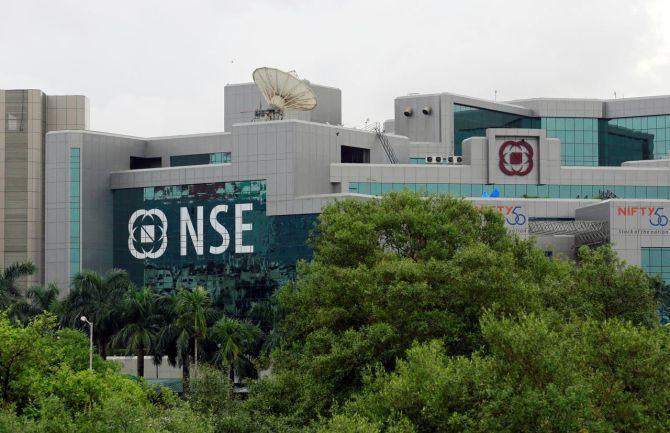Based on a feedback, the exchange could cap a sector’s weight at 25 per cent, or align with the broader market.

The National Stock Exchange of India (NSE) is considering capping sectoral weights in the benchmark Nifty50 index, a move that could trigger a sell-off in financial stocks.
The proposal is aimed at providing more diversity and reducing the concentration of one sector.
The Nifty, considered a barometer of the Indian economy, has the representation of 13 sectors through 50 stocks.
However, financials, which include banks and non-banking financial companies (NBFCs), alone account for over 37 per cent of the index weight, exerting a disproportionately high influence on the market.
In other words, the fortune of the stock market is tied closely to the performance of financial stocks.
Experts say most popular global indices don’t have a sectoral cap, but the weight of the top sector in markets like the US, Japan and the UK is little compared to India. Also, sector weights in the developed world are more in sync with the real economy.
For instance, in the Dow Jones Industrial Average, an index of 30 large US-listed companies, the technology sector has the highest weight at 24.93 per cent, followed by financials at 21 per cent.
Similarly, the FTSE 100 index of the London Stock Exchange has technology as the biggest sector with 19.6 per cent weight, followed by consumer durables and real estate at around 15 per cent each.
Japan’s Nikkei 225 has communications and technology as the two biggest sectors with weights of 31 per cent and 28 per cent, respectively.
“The weight of financial services is at odds with the sector’s weight in the economy. It simply doesn’t have that kind of share in our GDP,” said Saurabh Mukherjea, founder and chief investment officer at Marcellus Investment Managers, calling for more realignment between market performance and economic growth.
The NSE has sought market feedback on whether it should go ahead with the proposal to have a threshold on sectoral weights.
Based on the response, the exchange could cap a sector’s weight at 25 per cent, or align with the broader market.
The share of financial companies in the overall listed universe is 31.88 per cent - high but still below its Nifty weight.
In a discussion paper, the NSE has said sectoral caps would lead to diversification but has also listed several negative aspects.
Some of the downsides of the move include frequent churning of index components and under-representation of large sectors of the economy.
“Improper weights skew the Nifty’s performance away from the structure of the economy. Sectors like metal, mining and heavy industrials don’t have adequate representation in the stock market as they have in the economy.
“Some efforts need to be put in towards more alignment of the stock market and the real economy.
"Otherwise, we will see this divergence where the nominal GDP growth is 12 per cent but corporate earnings are growing at barely 6 per cent for a decade now,” Mukherjea added.
The weight of a particular stock is computed on the basis of its free-float market capitalisation, which excludes the shares owned by promoters or those under lock-in.
As Indian banks like HDFC Bank and ICICI Bank are promoter-less institutions, they have high free-float market cap and thus higher weights in the index.
On the other hand, Tata Consultancy Services (TCS), the country’s second-most valued firm, is not even among the top five companies in terms of Nifty weights due to high promoter shareholding.
Besides sectoral caps, the NSE is also considering surveillance-based parameters for selecting stocks for the Nifty and other indices.
Under this regulatory action against a company such as additional margin requirements for derivatives, price bands, addition to so-called graded surveillance measure (GSM) or additional surveillance measure (ASM) would spoil the chances of a stock being added to an index.
Photograph: Danish Siddiqui/Reuters












 © 2025
© 2025